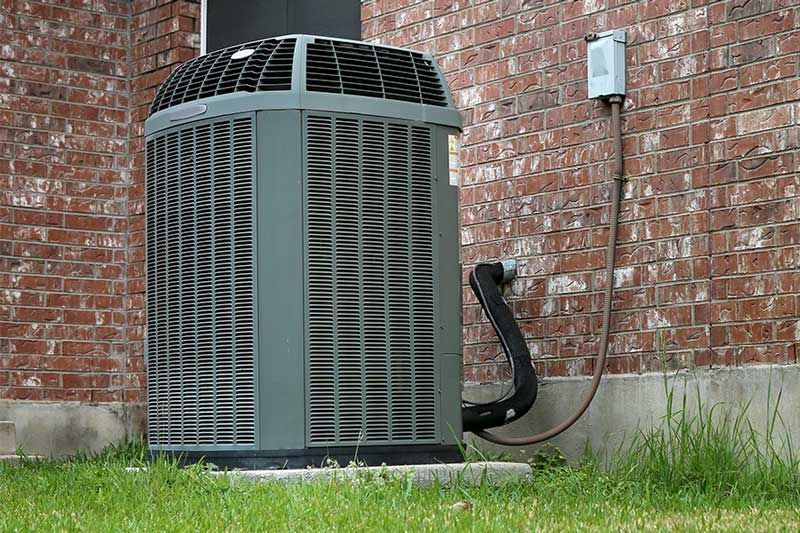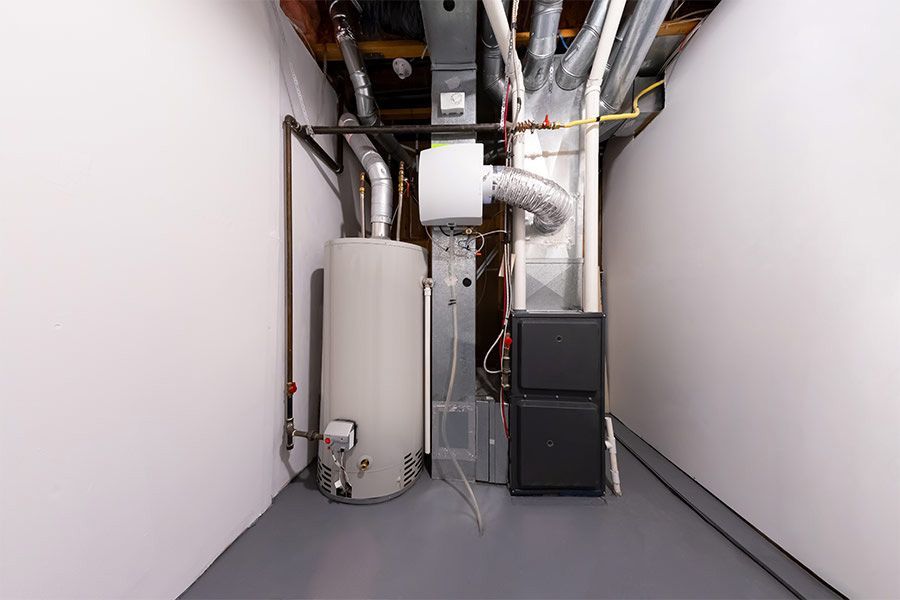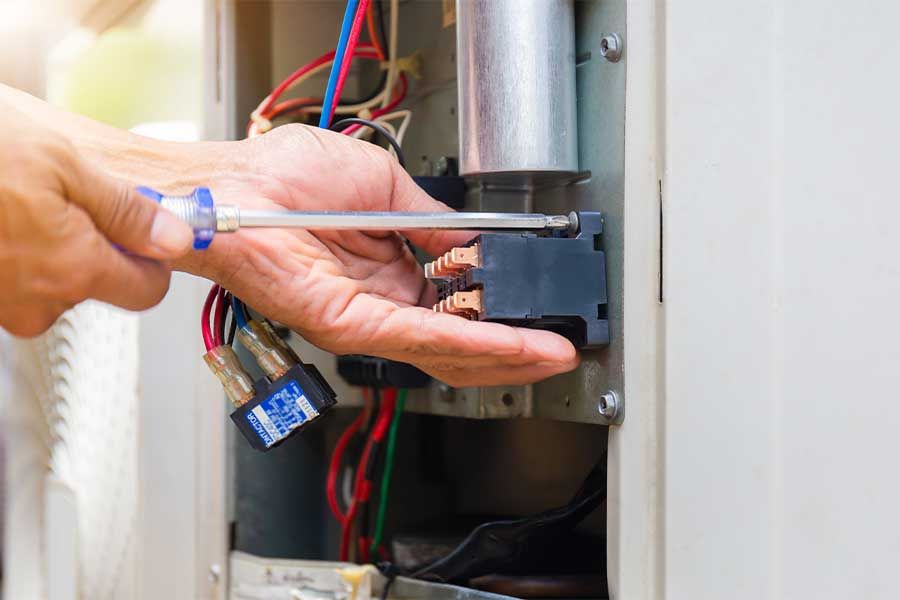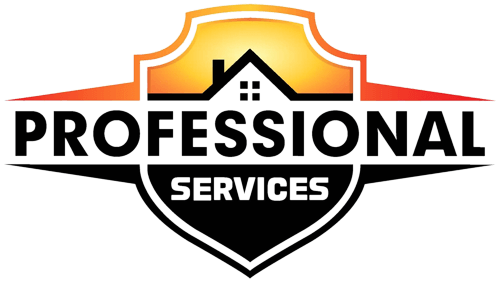The Risks of DIY HVAC Repair: Why It’s Best Left to the Pros
It might seem like a cost-effective solution when tackling HVAC repairs, but are you aware of the potential pitfalls? Attempting to fix these complex systems without professional expertise can lead to misdiagnosed issues, electrical hazards, and even voided warranties. Imagine handling refrigerants or maneuvering through intricate wiring without the right tools or knowledge. The risks don’t stop there—improper repairs can compromise your system’s efficiency and safety, possibly escalating long-term costs. So, why gamble with your home’s comfort and safety? There’s more to this than meets the eye.
Misdiagnosing HVAC Issues
Misdiagnosing HVAC issues can lead to inefficiencies, increased costs, and safety hazards, so it’s crucial to accurately identify the problem before attempting any repairs. When you approach an HVAC issue with a mindset of service, precision becomes paramount. An incorrect diagnosis might seem trivial, but it could further damage the system or pose significant safety risks. For instance, if you mistake a refrigerant leak for a simple airflow problem, you will likely overlook the root cause and risk exposing yourself and others to harmful chemicals.
To effectively serve others, start by familiarizing yourself with the symptoms of common HVAC problems. A detailed inspection will often reveal subtle signs distinguishing one issue from another. Pay attention to unusual noises, temperature inconsistencies, or abnormal energy consumption. Use this data to narrow down possible issues before concluding. Remember, the integrity of your HVAC system and the safety of those you serve depend on your ability to identify and address these problems correctly. If you’re ever uncertain, it’s wise to consult a professional to guarantee accuracy and safety.
Risk of Electrical Hazards
When handling DIY HVAC repairs, you’re exposed to electrical hazards that demand strict adherence to safety protocols to prevent severe injuries or damage. HVAC systems involve complex wiring and high-voltage components. Without the proper expertise, you risk electric shock, burns, or even starting a fire. These systems are intricately connected to your home’s electrical grid, and any misstep can lead to catastrophic outcomes.
Understanding the system’s wiring diagrams and using the correct tools is essential. You need to identify and isolate the power source before any work begins. Failing to properly de-energize the unit can result in unexpected electrical surges. Additionally, handling capacitors—components that store electricity even after power is cut—requires extra caution. They can discharge suddenly, causing injury.
Moreover, the potential for creating a short circuit exists, which could damage the HVAC unit or your home’s electrical system. This jeopardizes your safety and compromises the comfort of those relying on you for a properly functioning HVAC system. Prioritize safety by recognizing these risks and considering professional HVAC technicians with the training and tools to perform repairs safely and efficiently. Your focus should always be on safeguarding yourself and those you serve.
Voiding Manufacturer Warranties
Attempting DIY repairs on your HVAC system can void manufacturer warranties, leaving you responsible for any future malfunctions or damages. When you purchase an HVAC unit, the manufacturer’s warranty is your safety net, guaranteeing repairs or replacements at minimal or no cost. DIY repairs, however well-intentioned, often breach warranty conditions. Manufacturers stipulate that only certified technicians should perform repairs, as they have the expertise to safely handle the intricacies of HVAC systems.
Warranties are designed to protect you and the manufacturer by guaranteeing that any work done on the system meets their rigorous standards. When you bypass professional service, you risk not only your system’s integrity but also its warranty. The costs will come out of your pocket if something goes wrong later. As someone who seeks to serve and support others, it’s vital to recognize the importance of maintaining these protections for yourself and those who depend on you.
Moreover, professional HVAC technicians have access to specialized tools and parts necessary for maintaining your unit’s efficiency and longevity. Their expertise guarantees that any repairs are performed correctly, preserving the warranty and the system’s performance.
Potential for Further Damage
Taking on HVAC repairs yourself greatly increases the risk of causing further damage to the system, potentially leading to more costly issues than if a certified technician handled the problem initially. DIY repair attempts can introduce new problems, such as misdiagnosing the issue or using incorrect replacement parts. Without professional training, you might overlook subtle signs of wear or malfunction that a skilled technician would catch immediately.
Improper handling of components can also exacerbate existing issues. For instance, incorrect thermostat calibration or mishandling of electrical connections can disrupt system efficiency or even cause a complete system failure. This increases repair costs and risks compromising your home’s comfort and safety.
Moreover, your efforts might inadvertently void any existing warranties, leaving you responsible for all repair expenses. Certified technicians bring a wealth of experience and specialized tools to guarantee problems are accurately diagnosed and efficiently resolved, preserving system integrity.
Your HVAC system is a complex, interconnected network that requires precise handling. Opting for professional service protects your investment and guarantees your system operates safely and efficiently. This allows you to serve others by maintaining a comfortable and reliable environment.
Handling Hazardous Materials
Handling hazardous materials in HVAC systems demands precision and awareness to secure your safety and the system’s integrity. When you undertake HVAC repairs, you often deal with substances like refrigerants, which can be dangerous if improperly handled. These materials require specific knowledge and equipment to manage safely. Without professional training, you risk exposure that could harm your health or the environment.
Consider the following potential hazards:
- Refrigerant leaks: Exposure can lead to respiratory issues and environmental damage if not appropriately contained.
- Electrical hazards: HVAC systems are wired with high voltage that can cause serious injury if mishandled.
- Chemical burns: Certain cleaning agents and chemicals used in maintenance can cause skin burns or irritation.
- Toxic fumes: Improper ventilation during repairs can lead to inhalation of harmful fumes, jeopardizing your well-being.
Attempting to handle these materials without the right expertise endangers you and can compromise the system’s performance. It requires skill to ensure that the HVAC unit operates efficiently and safely. By leaving this task to professionals, you’re protecting yourself and securing the comfort and safety of those you serve.
Lack of Proper Tools
How can you guarantee precision and safety when undertaking HVAC repairs without the right tools? HVAC systems are complex, requiring specialized equipment to ensure each component is handled correctly. For example, a digital multimeter is essential for accurately measuring electrical currents, while a refrigerant recovery machine is necessary for safely handling refrigerants. Using improper tools can lead to inaccurate diagnostics, further damaging the system and potentially causing harm to you and others.
Moreover, professional-grade tools are designed with safety features that protect the user and the HVAC unit. Without these tools, you risk exposure to high voltages or refrigerant leaks, which can be hazardous. Professionals are trained to use these tools effectively, reducing the risk of accidents and ascertaining the system operates efficiently.
Your desire to serve others by maintaining a comfortable environment is commendable, but your efforts could be counterproductive without the proper tools. Investing in the right equipment is costly and requires proper training to use safely. Trusting professionals who already possess the necessary tools and expertise ascertains the job gets done safely and effectively, ultimately serving your community better by avoiding mishaps and ascertaining reliable HVAC performance.
Incomplete or Improper Repairs
Attempting HVAC repairs without the right tools often leads to incomplete or improper repairs, compromising system efficiency and safety. When you take on the challenge yourself, the risks can be substantial. Each HVAC system component is intricately designed, and one misstep can result in serious problems. Improper repairs can lead to issues like refrigerant leaks, electrical failures, or airflow obstructions, which pose safety hazards.
Consider the following potential outcomes of incomplete repairs:
- Refrigerant leaks: Leaks can harm your health and the environment without proper sealing and testing.
- Electrical hazards: Faulty wiring or connections may increase the risk of fire or shock.
- Component wear and tear: Misaligned parts or improper installation can accelerate damage.
- System imbalance: Incorrect calibration can lead to uneven heating or cooling, which can cause discomfort and stress on the system.
Inefficient System Performance
Have you considered how DIY HVAC repairs might compromise your system’s efficiency, leading to uneven temperatures and increased energy bills? When you attempt to fix your HVAC system without professional help, you might misalign components, overlook critical adjustments, or use incorrect parts. These mistakes can cause your system to work harder than necessary, straining the components and reducing overall performance. This makes your home uncomfortable and forces your HVAC system to consume more energy, driving up costs.
Without proper calibration, your thermostat may fail to accurately regulate indoor temperatures, causing some rooms to be too hot while others remain frigid. In addition, improper airflow adjustments could lead to blockages, causing your system to overheat or freeze. These inefficiencies burden your wallet and reduce your HVAC system’s lifespan, ultimately requiring more frequent repairs or premature replacement.
Safety Concerns for Homeowners
Tackling HVAC repairs can expose you to significant safety hazards like electrical shocks, refrigerant leaks, and potential carbon monoxide exposure. Each of these dangers risks serious injury or even life-threatening situations. When working with HVAC systems, it’s vital to understand the complexities and dangers involved.
- Electrical Shocks: HVAC systems require handling live electrical components. Improper handling could lead to severe shocks. Always remember, electricity is not forgiving.
- Refrigerant Leaks: These leaks can harm your health and the environment. Refrigerants are toxic, and exposure can lead to respiratory issues or chemical burns.
- Carbon Monoxide Exposure: Faulty repairs might lead to carbon monoxide leaks. This odorless, colorless gas can be deadly if inhaled in large quantities.
- Fire Hazards: Incorrect repairs can lead to faulty wiring or overheating, increasing the risk of fires within your home.
Prioritize safety by allowing professionals to handle HVAC repairs. Their expertise guarantees that these risks are minimized, protecting your well-being and the safety of those you care for. Remember, safety isn’t an area to compromise when it comes to HVAC systems.
Long-Term Cost Implications
While prioritizing safety is paramount, it’s also important to recognize that improper DIY HVAC repairs can lead to increased long-term costs due to inefficient operation, reduced lifespan of the system, and potential damage requiring more extensive professional interventions. When you attempt a DIY fix, you might overlook essential calibrations or fail to identify underlying issues that affect system performance. An improperly repaired HVAC system may consume more energy, leading to higher utility bills.
Moreover, incorrect or substandard parts can accelerate wear and tear, drastically shortening the system’s lifespan. You might initially save on repair costs, but frequent breakdowns and replacements quickly negate those savings. Additionally, minor mistakes can escalate into significant problems, necessitating costly professional repairs that could’ve been avoided.
Engaging a professional from the start guarantees your HVAC system operates efficiently and reliably. Professionals have the training and tools to diagnose and repair issues accurately, extending the system’s lifespan and optimizing energy use. This proactive approach preserves your HVAC investment and aligns with your desire to serve others by maintaining a comfortable and safe environment for family and guests.
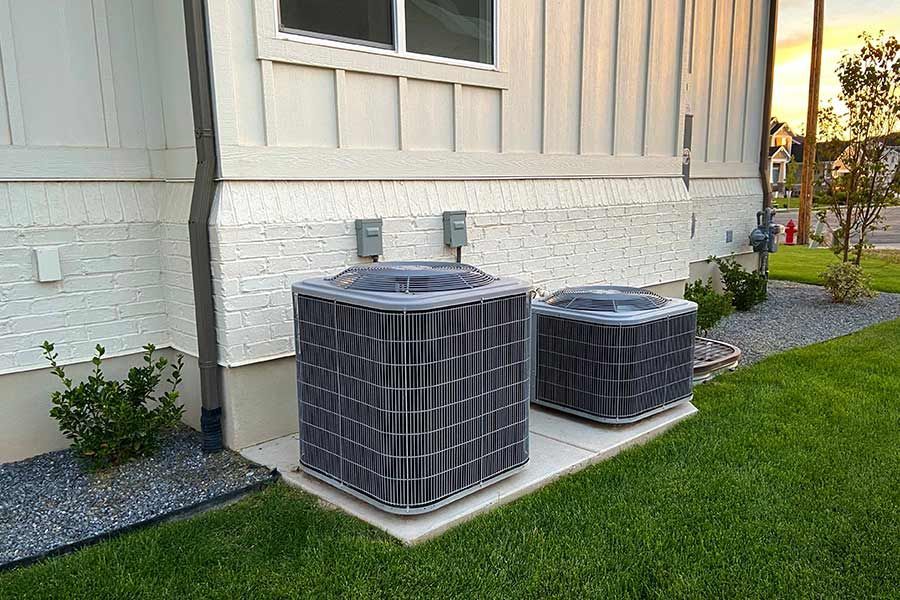
Conclusion
When you tinker with your HVAC system, you’re dancing with danger. Without expert knowledge, you might misstep into a costly waltz of misdiagnosed issues or voided warranties. Electrical hazards and refrigerant leaks loom like storm clouds, threatening your home’s safety. Incomplete repairs can snowball into bigger problems, leaving you with an inefficient system. So, let the professionals handle it. They’ll navigate these treacherous waters with expertise, ensuring your HVAC system remains well-oiled.
Frequently Asked Questions
Can DIY HVAC Repairs Impact My Home Insurance Policy?
DIY HVAC repairs can indeed impact your home insurance policy. Insurers might deny claims if unlicensed work causes damage. Prioritize safety by hiring a professional, ensuring compliance with policy terms, and protecting your home and loved ones.
How Does DIY HVAC Repair Affect Energy Efficiency Tax Credits?
DIY HVAC repairs can void manufacturer warranties, making you ineligible for energy efficiency tax credits. To guarantee you get these credits, hire certified professionals who’ll properly install and maintain systems, enhancing safety and efficiency for everyone.
Are There Any Legal Permits Required for HVAC Repairs?
Permits can be pivotal for proper HVAC repair. You must check local laws, as certain jurisdictions demand documentation. Ensuring compliance safeguards safety and service standards, ultimately benefiting those you serve by maintaining legal and operational integrity.
What Are the Environmental Impacts of Incorrect HVAC Repairs?
Incorrect HVAC repairs can lead to refrigerant leaks, releasing harmful chemicals into the atmosphere. You risk increasing your carbon footprint and exacerbating climate change. Prioritize safety and environmental responsibility by consulting professionals for proper repairs.
How Does DIY HVAC Repair Influence Property Resale Value?
Imagine a castle’s foundation, strong yet unseen. DIY HVAC repairs can crumble property value like hidden cracks. Buyers seek safety, not surprises. Proper repairs guarantee your home serves others well, maintaining its worth and allure.
You might also like
